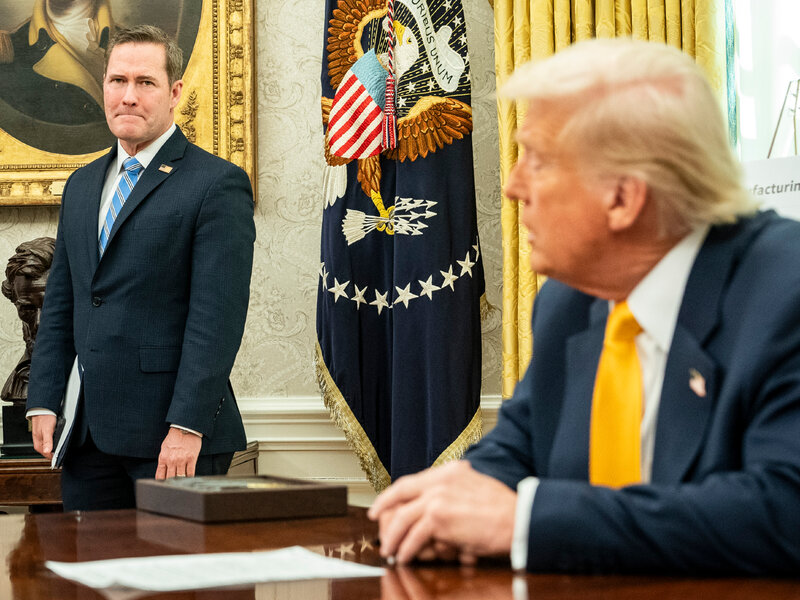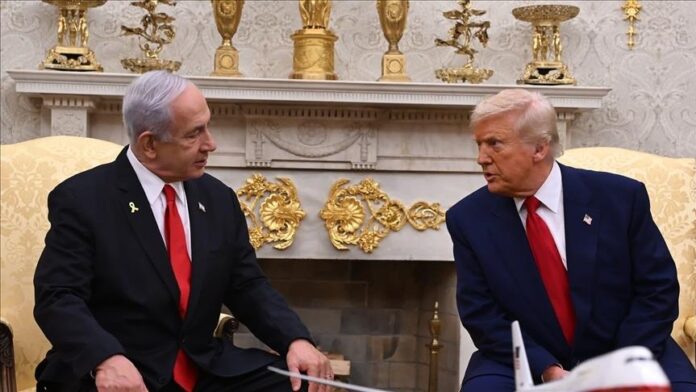President Donald Trump actively terminates direct communication with Israeli Prime Minister Benjamin Netanyahu, reshaping U.S.-Israel relations. Close associates inform Trump that Netanyahu manipulates U.S. policy, prompting a decisive break. “There is nothing Trump hates more than being portrayed as a fool or someone being played,” states an Israeli official, as reported by Anadolu Agency. Israel’s failure to deliver clear strategies on Iran and Gaza fuels Trump’s frustration. This action marks a significant departure from traditional U.S. support for Israel.
Waltz’s Removal Exposes Israel’s Overreach
Trump dismisses National Security Adviser Mike Waltz for covertly aligning with Netanyahu on Iran’s nuclear program. Waltz, a former Green Beret, advocates military strikes, conflicting with Trump’s diplomatic strategy. “Waltz wanted to take U.S. policy in a direction Trump wasn’t comfortable with,” reveals a White House insider, according to The Daily Beast. His pre-February meeting coordination with Netanyahu angers Trump, who demands loyalty. “You work for the president of your country, not a president of another country,” asserts a Trump adviser, cited by The Times of Israel.

Security Lapses Heighten Distrust
Waltz’s reliance on TeleMessage, an app tied to Israeli intelligence, amplifies Trump’s suspicions of Israel’s intentions. The app’s vulnerabilities expose sensitive data, alarming U.S. officials about potential espionage risks. “The government has no reason to use a Signal knockoff that raises obvious counterintelligence concerns,” declares Senator Ron Wyden, as noted by Drop Site News. Waltz’s error in adding a journalist to a sensitive Signal chat further erodes trust. These breaches solidify Trump’s resolve to distance himself from Israel’s influence.
Houthi Truce Isolates Israel
Trump announces a ceasefire with Yemen’s Houthis on May 1, 2025, excluding Israel from the decision-making process. The agreement halts U.S. military actions while Houthi attacks on Israel persist, leaving Israel vulnerable. “Israel will defend itself by itself,” vows Netanyahu, as reported by CNN, emphasizing Israel’s isolation. Trump’s unilateral action prioritizes U.S. interests over Israel’s security needs. “The Trump Administration thinks about America’s interests,” observes Dennis Ross, former U.S. Middle East envoy, in CNN.
Iran Diplomacy Sidelines Israel
Trump pursues a diplomatic agreement with Iran, alarming Israel, which demands a complete nuclear program shutdown. The talks, mirroring the 2015 accord, focus on limiting Iran’s capabilities without total dismantlement. “Netanyahu is delaying making the necessary decisions,” reports Ariel Kahana, journalist for Israel Hayom, highlighting Trump’s frustration. Israel’s exclusion from these negotiations shows Trump’s independent approach. This shift challenges Israel’s influence over U.S. Middle East policy.
MAGA Drives Anti-Israel Sentiment
Trump’s MAGA loyalists, including Stephen Miller, steer foreign policy toward skepticism of Israel’s reliability. These advisers champion an America First agenda, questioning Israel’s strategic value. “Loomered,” boasts far-right activist Laura Loomer, as quoted by Politico, after influencing Waltz’s ouster. Trump’s aversion to manipulation, coupled with security concerns, hardens his stance against Israel. “There is nothing Trump hates more than being portrayed as a fool,” reiterates an Israeli official, per Anadolu Agency.
Policy Shift Reshapes Alliances
Trump’s termination of ties with Netanyahu and Waltz’s dismissal redefine U.S.-Israel relations within weeks. Israel faces reduced U.S. military support, confronting Houthi threats independently. Trump’s focus on Iran diplomacy and exclusion of Israel from key decisions signal a weakened partnership. “The Trump Administration thinks about America’s interests,” reaffirms Dennis Ross, former U.S. Middle East envoy, in CNN. This realignment exposes a fractured alliance, leaving Israel to navigate regional challenges alone.

